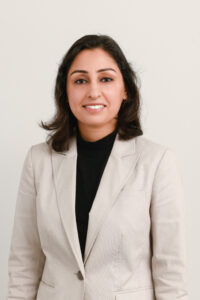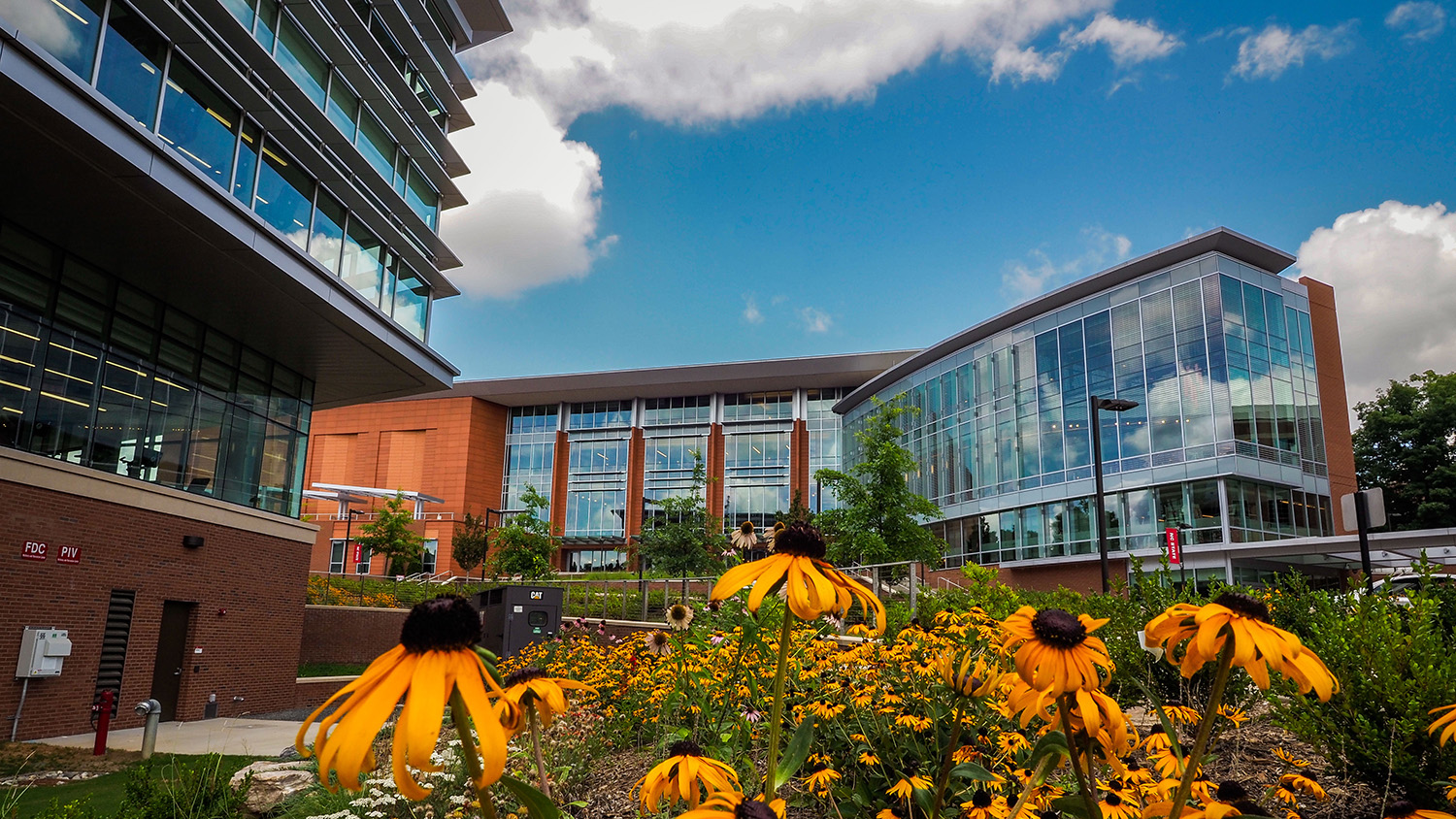Meet Faculty Fellow Sarah Khan

Associate Teaching Professor Sarah Khan’s online teaching journey started before online learning became the new normal, but she’s glad everything worked out the way it did. As a DELTA Faculty Fellow, Khan uses the program to tackle bigger challenges and help coworkers overcome the obstacles that come with flexible learning in higher education.

Khan began at NC State in January 2017, making 2022 her sixth year with the university. Equipped with an MBA, a master’s in economics and a doctorate degree in computing and inf
ormation systems from UNC Charlotte, Khan was soon tasked with converting an in-person class to a hybrid format upon her appointment at NC State.
“One of the classes I started teaching at NC State started becoming really big in terms of enrollment,” Khan said. “We were running out of physical space, so there were a few ideas of how to manage it. One of the ideas was to make it a hybrid class.”
In fall 2017, Khan and her colleagues began to transition the class to a hybrid format, something that was mostly unheard of at the time. After rolling out the first version of the class in spring 2018, Khan worked with DELTA to continue fine-tuning the design.
“Right when we finalized the design, COVID-19 happened, so we were really lucky with the timing,” Khan said. “I know it doesn’t sound good, but the timing couldn’t have been more perfect because the hybrid design we developed was very easy to [transition] online.”
Khan became familiar with the Faculty Fellows program through an email from DELTA. She reached out to Teaching Associate Professor Lina Battestilli, a Faculty Fellow herself, to learn more about it. Although Khan wasn’t familiar with the program, she was motivated to apply after Battestilli spoke about her experiences.
“I realized being a Faculty Fellow is rewarding,” Khan said. “Not only in terms of sharing your experience, but also learning from others’ experiences as well.”
Right now, Khan is working with two other Faculty Fellows to determine how effective the HyFlex course model has been for students. The HyFlex model includes in-person, synchronous and asynchronous components, an integral part of higher education during the pandemic. She is also teaching interested faculty about “Agile” course design, a classroom style with embedded flexibility to address the course delivery needs as they arise.
Khan also aims to share her experiences with other faculty members seeking mentorship from DELTA and to spread the word about the Faculty Fellows program.
“I remember being in that position and thinking, ‘Where can I get help?’” Khan said. “In one way that is a good position to be in because it pushes you to find answers, however, I believe one can do so much if they have a helping hand.”
Khan’s classes are technology-intensive. When teaching with technology, she emphasizes that the basics need to come first. Utilizing several teaching tools such as Moodle, Zoom, Ponapto etc. along with different softwares can become overwhelming for students, so consistency and simplicity are the keys to success.
“This is my strategy throughout,” Khan said. “Keep it simple in the beginning, and once they get used to the design and format, then you can build on those habits by introducing new concepts/tools.”
One of Khan’s biggest goals as a Faculty Fellow is to share her knowledge and experiences with those in higher education who could benefit from it. Through her partnership with DELTA, her expertise bleeds not only into her colleagues’ work, but across different universities.
“Programs like this allow a medium for that knowledge to spread across borders and benefit others, which is really important because people have to overcome so many obstacles in teaching higher ed,” Khan said. “We’re still wondering whether those challenges are being addressed or not.”
If you’re interested in learning more about becoming a Faculty Fellow, DELTA Grant applications open in March.


